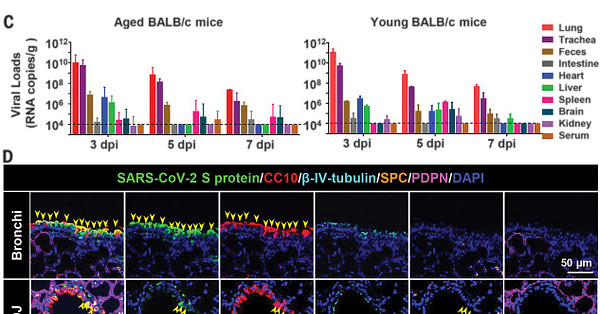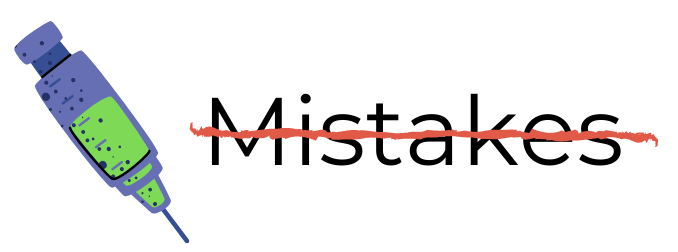Good morning! It has been 401 days since the first documented human case of COVID-19.
I’m continuing to cover the UK variant that has appeared and dominated COVID-19 headlines for the past few days, and also talking a bit about allergic reactions to the Pfizer vaccine.
Though I am focused on these two topics, please be aware that the virus situation in the US and many other countries is still really very bad. The rollout of these vaccines is slow, and even run of the mill COVID-19 is still a very dangerous illness. Please remain vigilant. Please do everything you can to stay safe.
As usual, bolded terms are linked to the running newsletter glossary.
Keep the newsletter growing by sharing it! I love talking about science and explaining important concepts in human health, but I rely on all of you to grow the audience for this:
Now, let’s talk COVID.
Rare allergic reactions to the Pfizer vaccine
Several rare apparent allergic reactions to the Pfizer vaccine have been reported during its rollout. To understand what “rare” means, I want to explain that there were fewer than 10 such reactions among hundreds of thousands of people vaccinated. So, these are exceedingly rare.
Additionally, there’s always some amount of allergic reaction incidence with vaccines. Vaccines are meant to induce an immune response. An allergic reaction is an immune response; it’s just not the one that the vaccine was designed to induce. In a way it’s remarkable that we can make vaccines specific enough that the vast and overwhelming majority of people have the response that we’re looking for; yet we keep doing just that.
Anyway, now that I’ve done my best to try and convince you this probably won’t happen to you, I want to discuss why these few reactions seem to have happened to the patients who experienced them.
I was shared the following article by Dr. James Prego, ND, a friend of mine who I met through the science fiction convention circuit: https://www.livescience.com/allergies-pfizer-coronavirus-vaccine.html
This article nicely explains the vaccine ingredient that may be causing these reactions: polyethylene glycol, or PEG. PEG is a compound that has many applications, but in medicines it is typically used as an “excipient,” an additive that helps to stabilize what it is attached to to aid in delivery within the body. PEG is used in these two vaccines to help stabilize the fat globules that are used to carry the vaccines’ mRNA into cells.
PEG can cause allergic reactions in some people. This does not mean that we know it to be the cause of these apparent allergic reactions. However, it is the ingredient in the Pfizer vaccine that is attracting the most attention as a suspect. Please note that the Moderna vaccine also contains PEG.
It hasn’t been entirely verified that these were all genuine allergic reactions, either. There are a few reactions that people can have to needles—such as “vasovagal syncope,” which is loss of consciousness due to a drop in blood pressure—that can resemble an allergic reaction.
No incidents of anaphylaxis, a dangerous, life-threatening allergic reaction, have been reported with either vaccine. Still, there is a recommendation that patients receiving the vaccine be monitored for 15 minutes after their injection.
I don’t think these reports change anything about what I’d tell anyone to do when making the choice about whether or not to get a given vaccine. My advice is always to read the prescribing information (in this case, the EUA information sheet, because the vaccines are only under emergency use authorization rather than full approval). These documents contain the full ingredients of the vaccine as well as information on special populations. You should read the ingredients of the vaccine to make sure it doesn’t contain anything you’re allergic to or have had allergic reactions to in the past. If it does contain something like that, you should bring that up to your healthcare practitioner and talk about what to do.
You should also read the special populations section, to see if there are any special conditions mentioned that apply to you. I recommend talking these over with your healthcare practitioner also if they do apply to you.
Ultimately, not every vaccine is safe for every person. These two vaccines appear to be overwhelmingly safe in most people, however. It appears to be very rare for someone to fall into a category where either of these vaccines might be contraindicated. However, it’s always possible that someone reading these words has a legitimate medical reason not to receive any given vaccine. It’s important to talk these things over with your healthcare practitioner and do what’s right for you.
However, if it’s safe for you, and you have the opportunity, get vaccinated. You’ll be doing yourself and everyone you know a favor.
What am I doing to cope with the pandemic? This:
Gearing up for some time off
My company shuts down for the week between Christmas and New Years’ Day, plus a little bit of buffer time. Given the COVID-19 situation around the country, as I enter this period, instead of thinking about travel or other recreation, I’m thinking about that I’m going to be doing in my apartment all of these days.
I’m hoping I’ll get to clean, write a little, and maybe play some board games. It sounds pretty nice to not have to open up my work computer for a while.
New lessons about the UK variant
I’ve been following the emerging situation regarding the UK variant very closely. I don’t have a lot to say at this point that I haven’t already said; there is still no evidence that it has an effect on transmission, or that it worsens disease, or that it will interfere with vaccination. However, there is some new information that I’ve found that I wanted to share with everyone and explain.
First, I saw the following tweet from Dr. Vincent Racaniello, PhD, of This Week in Virology:


Here, Vincent shares a paper from Science that examines one of the spike glycoprotein mutations present in the UK variant, called N501Y. Specifically, this paper examined whether this mutation would overcome immunity to SARS-CoV-2 in mice that had been immunized with a spike protein region lacking the mutation. The researchers found that the presence of this mutation did not impact immunity in these mice.
Now, as I actually learned from Vincent himself, “mice lie and monkeys exaggerate,” but this is evidence suggesting that this particular mutation does not impact the immunity that the vaccines will induce.
Further evidence comes from additional tweets from the Menachery Laboratory at UTMB:



This is about as raw as science can get. This lab is tweeting experimental results that they’ve collected almost in real time because they know they are of great public interest. I’d like to explain what the Menarchery Lab has done here, though. Specifically, they used an experimental system and antibodies collected from patients to see whether antibodies to non-mutated versions of SARS-CoV-2 still had an effect on virus with the N501Y mutation. They expressed the effect of these antibodies on each virus as a ratio, and you can see that generally speaking, antibodies are about as effective against the mutated virus as they are against the older sequence The nice, even diagonal in the graph shows this; if the mutation affected the ability of these antibodies to have an effect, positively or negatively, the points in the graph would distribute unevenly.
Now, the second tweet points out that we are looking only at one specific mutation. There are other mutations in this spike protein. However, the spike protein is a big protein, and the immune response can react to many parts of it. When you create an immune response, it doesn’t just target one part of the protein. Many antibodies are produced that target different regions, during an immune response. I don’t anticipate that the handful of mutations in this new variant will substantially compromise the vaccine or other preexisting immunity.
I think the data that I’ve shared here give us the first evidence to suggest that that is true, but it is still early in the effort to study this new variant. We will learn more, and I will share it as we learn it.
Meanwhile, the WHO has provided additional information on this variant as well as guidance for public health officials and governments: https://www.who.int/csr/don/21-december-2020-sars-cov2-variant-united-kingdom/en
For the most part I agree with the WHO here. I particularly agree with this statement:
All viruses, including SARS-CoV-2, change over time, but most of these mutations or changes do not have a direct benefit to the virus or may even be detrimental to its propagation. Further laboratory investigations are required to more fully understand the impact of specific mutation on viral properties and the effectiveness of diagnostics, therapeutics and vaccines. These investigations are complex and require time and collaboration amongst different research groups.
We need time and study to understand this better. While we take that time, we should continue to be cautious and try to contain all outbreaks of COVID-19, whether caused by this variant of SARS-CoV-2 or a different lineage.
You might have some questions or comments! Send them in. As several folks have figured out, you can also email me if you have a comment that you don’t want to share with the whole group.
I’ve been contemplating changing the schedule of this newsletter a little bit; perhaps reducing it from daily to 3 times a week. I’m interested in your thoughts; feel free to comment publicly or send them my way privately.
Thank you to those who answered me about this already; I’m taking all of the feedback under consideration.
Join the conversation, and what you say will impact what I talk about in the next issue.
Also, let me know any other thoughts you might have about the newsletter. I’d like to make sure you’re getting what you want out of this.
Part of science is identifying and correcting errors. If you find a mistake, please tell me about it.
Though I can’t correct the emailed version after it has been sent, I do update the online post of the newsletter every time a mistake is brought to my attention.
No corrections since last issue.
See you all next time.
Always,
JS









Hey, John: can you comment on the AstraZeneca/Gameleya cooperation agreement announced recently? As a virologist who works for Big Pharma, you might have insights, I figure.
One question that occurs to me: why bother? By the time they can validate a combined protocol of their two vaccines, won't there be 8 or so vaccines already approved and on the market? I figure two or three from China, J&J, Novavax, and at least three others.